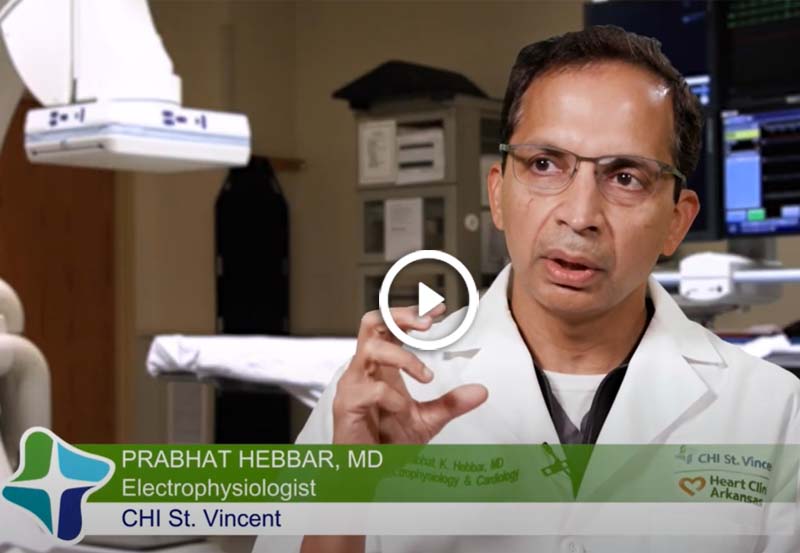
Establishing a relationship with a pediatrician is one of the best things you can do to keep your child healthy, from birth through the teenage years.

For some patients with atrial fibrillation, the WATCHMAN device can be used to prevent stroke.

Obesity is not just a cosmetic concern, it can also lead to long-term serious health problems. Dr. Brandon Ingram, General and Bariatric Surgeon, explains how.

Diet and exercise are the first steps to reach a healthy weight, if this is not successful, weight loss surgery may be a good option. Dr. Brandon Ingram, Bariatric and General Surgery, explains benefits of the gastric sleeve.

Being overweight has a direct negative effect on your heart health. Dr. Jason Pelton, Interventional Cardiologist, describes symptoms that may indicate there is a heart issue.

High blood pressure can lead to heart attack or stroke. “The heart pumps blood and then relaxes. With every beat when it pumps, the blood pressure goes up and then slightly comes down,” says Sibghat Tul Llah, M.D.

Robotic assisted surgery combines the surgeon’s expertise with the precision of robotic instruments.

Talking about irritable bowel syndrome (IBS) can be as uncomfortable as its symptoms, but ignoring it could be worse. Approximately 20% of the U.S. population, primarily women under 45, experience IBS, which affects the large intestine.

Chest pain, shortness of breath and fatigue should never be ignored. Dr. Yuba Acharya, Interventional Cardiologist, explains how to determine the cause of the symptoms.

An enlarged prostate is common and can cause uncomfortable urinary symptoms in men, but there are a variety of treatment options including Urolift and Aquablation Therapy. Dr. Nathan Littlejohn, Urologist, explains.

Dr. Nathan Littlejohn, Urologist, explains the symptoms and treatments of benign prostatic hyperplasia, or BPH, which is an enlarged prostate.

A blocked coronary artery is incredibly dangerous. Dr. Yuba Acharya, Interventional Cardiologist, describes the causes and symptoms of a blockage.

Early diagnosis and treatment of cancer can lead to better outcomes. Dr. Anuradha Kunthur, Hematology/Oncology, describes some symptoms that may indicate there is a problem and what to do.

CHI St. Vincent is able to offer Little Rock and the surrounding communities, the most advanced treatments in vascular surgery. Dr. Stephen Meadors, Vascular Surgeon, explains.

CHI St. Vincent offers some of the most advanced treatments available for brain tumors. However, you must first recognize the symptoms so that you know when to seek treatment. Dr. Ali Krisht describes symptoms that indicate you need to be seen by a physician.

It's vital that everyone be able to recognize the symptoms of a stroke such as a facial droop, arm weakness, vision or speech difficulties. Dr. Ali Krisht says if a stroke patient seeks treatment immediately, there will be more treatment options and possibly better outcomes.

If you've been diagnosed with high blood pressure and you can't lower it enough with lifestyle changes, medication is the next option. Dr. Anthony Fletcher, Interventional Cardiology, explains different options.

CHI St. Vincent and the Arkansas Neuroscience Institute are not only committed to treating strokes, they're committed to preventing them as well. Dr. Ali Krisht explains how ANI is a healthcare providing institute, but it is also an educational institute.

When you've been diagnosed with hypertension, there are many simple lifestyle changes that can help lower your blood pressure including watching your sodium intake, maintaining a healthy weight and exercising.

One of the most common types of stroke is caused by a clot that prevents blood from reaching a part of the brain. Dr. Ali Krisht explains how these strokes are treated at CHI St. Vincent.
